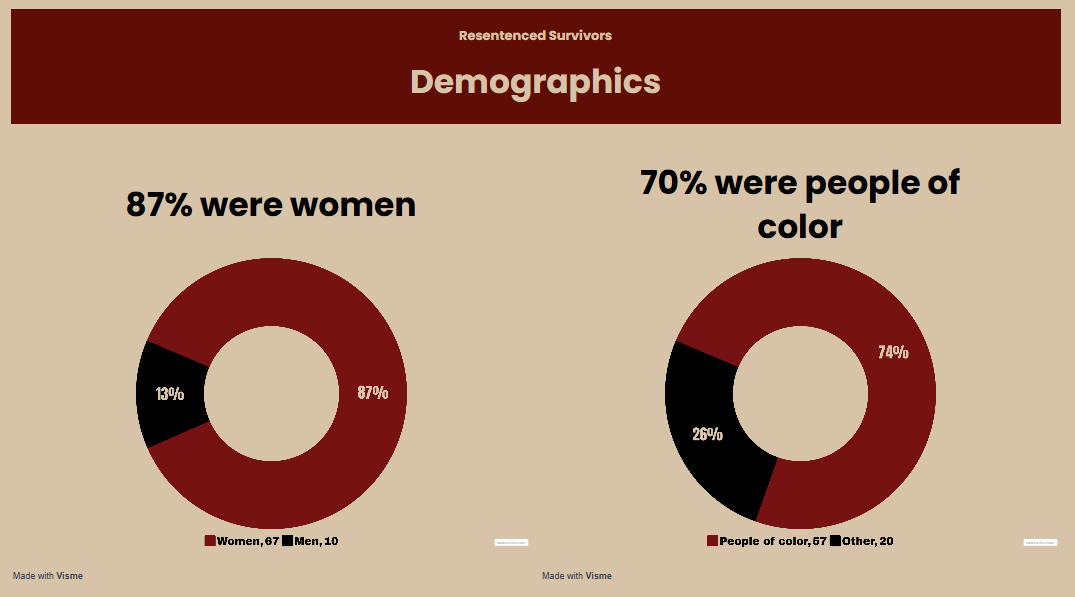A Community Worth Investing In: The Inaugural Grassroots Policy Incubator Orgs Bring Innovative Ideas to Life
By Carla Sinclair, Senior Communications Associate
From community engagement to immigration support to legal advocacy, these grassroots community organizations have worked the past six months with ISLG to identify and develop solutions to pressing policy challenges facing their communities.
“We were always responding to immediate needs. Now we know that we need to invest in building our organizational capacity in order to better get into the nitty gritty of the work.”
In a city as diverse as New York, community-based organizations (CBOs)—particularly small, grassroots ones—can draw on their unique insights and close community relationships to identify challenges and design strategies to address them. But their often small, nimble sizes have historically made it difficult to be competitive in complex funding processes and, relatedly, build up their internal capacity to grow, measure, and showcase their impact.
The Grassroots Policy Incubator was designed to fix that. Launched in 2024 in partnership between CUNY ISLG and the New York City Mayor’s Office of Economic Opportunity (NYCO), who funded this important work, the Incubator offered up to $40,000 to grassroots leaders or organizations to participate in a six-month incubation process, with the goal of developing an approach or recommendation that addressed a specific, identified policy gap or challenge in a NYC community. The GPI would support these orgs in developing these ideas, as well as provide them with tailored capacity-building support to address broader needs—such as in data collection and analysis, fundraising, or communications—related to their chosen policy gap.
The GPI would support these orgs in developing these ideas, as well as provide them with tailored capacity-building support to address broader needs—such as in data collection and analysis, fundraising, or communications—related to their chosen policy gap.
ISLG officially launched the GPI in April 2025. Chosen organizations focused on issues as diverse as the city itself: The Flossy Organization builds civic engagement in and advocacy for its home neighborhood of Canarsie, Brooklyn; the Immigrant Children Advocates’ Relief Effort (ICARE) connects unaccompanied children facing deportation proceedings in NYC with a coalition of legal providers and other services; and the Survivors Justice Project works to limit the impact of incarceration on domestic violence survivors through the New York Domestic Violence Survivors Justice Act (DVSJA).
For six months, ISLG staff and the GPI grantees met one-on-one and as a learning community to analyze their policy gaps and approaches to address them. They participated in community conversations and met with experts in relevant policy fields. The grantees also engaged in group and individualized Training and Technical Assistance (TTA) through ISLG or an external partner to address their broader organizational infrastructure.
The Incubator has now come full cycle. In late September, the three organizations came together in ISLG’s offices in Midtown to reflect on the work accomplished, what they learned from the Incubator, and what lies ahead.
The Flossy: Boosting Civic Engagement through Data Collection
The Flossy Organization joined the Incubator to build out its data collection and organizational growth goals, putting it in a strong position to continue boosting civic engagement and initiatives—like pushing for community centers and ferry access—in Canarsie.
“People just see us as the last stop on the L train,” said founder Jibreel Jalloh. “We are, but we’re so much more than that. We’re a community worth investing in.”
Jalloh described the work accomplished within the GPI, which has helped Flossy reshape and sharpen its plan for the next three years of work building civic engagement in Canarsie. This has included the initial goals of building data-collection capacity and developing key performance indicators for its Advocacy Academy Fellows and other campaigns. This work also led to rethinking how The Flossy engages its alumni, designs its fundraising materials, and measures board engagement.
“People just see us as the last stop on the L train. We are, but we’re so much more than that. We’re a community worth investing in.”
- Jibreel Jalloh
Founder, The Flossy Organization
The Survivors Justice Project: Harnessing Impact for Policy
The Survivors Justice Project came into the Incubator with different goals. With an organizational mission of helping attorneys, survivors, and advocates use the 2019 Domestic Violence Survivors Justice Act (DVSJA) to help incarcerated survivors obtain relief, they were seeking to develop a plan to formalize and codify their learnings so that those working to implement New York’s DVSJA or similar policies elsewhere have the information needed to build out justice-centered programs, policies, and practice.
Through the GPI, they developed a policy paper to lay out common DVSJA eligibility roadblocks and recommended legislative fixes, as well as redesign data and other key policy features of the law on their website so they were readily accessible to highlight who was—and who wasn’t—benefitting from the DVSJA.
As they worked on the webpage alongside ISLG staff and communications strategists, they also realized they needed to rethink how they thought, and spoke, about themselves. “We always saw our goal as talking about the DVSJA,” said SJP Director Judith Clark. “Through this process, we came to realize we needed to be talking about ourselves and what we were accomplishing, too.” This led to the start of an ongoing refresh of their website to better frame their trainings, impact, and organizational goals.
“We were always responding to immediate needs. Now we know that we need to invest in building our organizational capacity in order to better get into the nitty gritty of the work,” she reflected.
ICARE: Pivoting to Meet a New Landscape and New Needs
ICARE’s journey as an Incubator grantee had an even more divergent path. Initially having joined to launch a Friend of the Court volunteer program to provide in-court support for unaccompanied youth as young as 2 years old facing immigration judges without a lawyer. Over the past six months, federal funding for unaccompanied children was cut, juvenile dockets accelerated, courtroom access was tightened, and children became treated as enforcement priorities, forcing ICARE to change course.
Working with ISLG researchers, ICARE staff pivoted to a virtual Court Watch, with a court preparation component. “These kids have already been through so much, then face an immigration court not built for them, while the stakes could not be higher. Pivoting to Court Watch lets us turn what we learn in real time into immediate preparation and protection,” said Sierra Kraft, Executive Director of ICARE.
Volunteer observers now serve as the “eyes and ears” of the courtroom, capturing standardized notes that staff use to prepare youth for upcoming hearings and prioritize high-risk cases. The pivot also created space, working alongside ISLG, to streamline internal processes and build consistent data tracking that can drive systems change and inform lawmakers, while strengthening services and highlighting their impact across fundraising and communications.
Evan Goldstein, a Senior Policy Associate at CUNY ISLG who helped lead the GPI, described the program as a new, unique way of working with grantees. “This process was about working with grantees, asking them what they needed and helping them get there, not telling them what they had to do with little flexibility,” he said. “And the result was an incredibly high return on investment. It’s amazing what each of these organizations could accomplish once they’re given funding and the right tools.”
“It’s amazing what each of these organizations could accomplish once they’re given funding and the right tools.”
- Evan Goldstein, Senior Policy Associate
With the Incubator wrapping up, CUNY ISLG is exploring new ways to apply the lessons learned about funding, grant management, technical assistance, relationship building and more to the field, while also excitedly watching what the inaugural cohort of organizations accomplish next.
Photo by David Vives on Unsplash.





